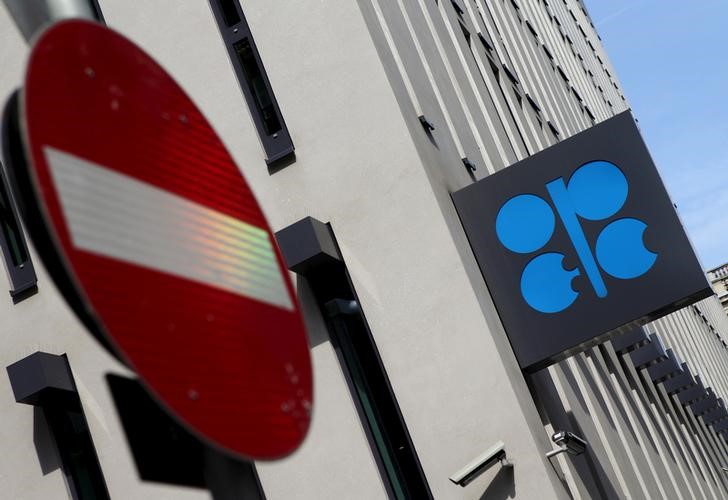By Rania El Gamal, Alex Lawler and Vladimir Soldatkin
VIENNA (Reuters) - OPEC is set to debate a technical increase of its production ceiling later this week to accommodate returning member Indonesia, delegates said on Monday, while hopes of a meaningful dialogue with rival non-OPEC members all but faded.
Indonesia asked OPEC this year to renew its membership, aiming to benefit from closer ties with oil producers. Some in the cartel say that Indonesia can offer insights in to oil consumers' views as it is now a net oil importer.
Indonesia produces some 900,000 barrels per day and this would need to be accommodated into OPEC's production ceiling, which has not changed from 30 million bpd over the past few years.
OPEC needs to present the issue very carefully to the markets so it is perceived only as a technical accommodation and not as a production increase at a time oil prices are already trading far below OPEC's expectations because of a growing global oil glut.
Oil prices have more than halved in the past 18 months to trade at just $45 (£30) per barrel after OPEC decided to fight for market share with rival producers by increasing output instead of cutting it to prop up prices.
One OPEC delegate, who asked not to be named, said raising the ceiling to 31 million bpd would be discussed at the Dec. 4 meeting and added he saw no impact on prices because Indonesian supply would simply be taken from non-OPEC to OPEC.
"Indonesia is rejoining, so how can you leave the ceiling at 30 million barrels a day? It is sensible," a second OPEC delegate said.
A third delegate said he expected the issue to be discussed this week but he added a formal decision might be taken later.
NO ONE FROM RUSSIA
OPEC has long said it would not cut its production alone and needed cooperation from all non-OPEC producers if they wanted to support prices via output decreases.
U.S. output has began declining as lower oil prices reduced the appeal of the shale oil boom.
But Russia, the world's largest oil producer, has instead ramped up output, taking OPEC by surprise, as its industry has benefited from a steep rouble devaluation, which the Kremlin used to cushion the impact of low oil prices.
Most recent data showed that Russian oil firms are drilling even more oil wells signalling it is ready for a protracted fight for market share with OPEC, as its industry can carry on even if oil prices reach $35 per barrel.
Last week, Russian energy sources said the country was not planning to send high-ranking officials for consultations with OPEC due to a lack of consensus on output cuts.
On Monday, Russia's Energy Ministry said it had decided against sending observers at all. Instead, the ministry expects an experts-level meeting with OPEC in mid-December.

A year ago, Russian Energy Minister Alexander Novak and Russia's most influential energy official, Rosneft head Igor Sechin, attended consultations before OPEC held talks.